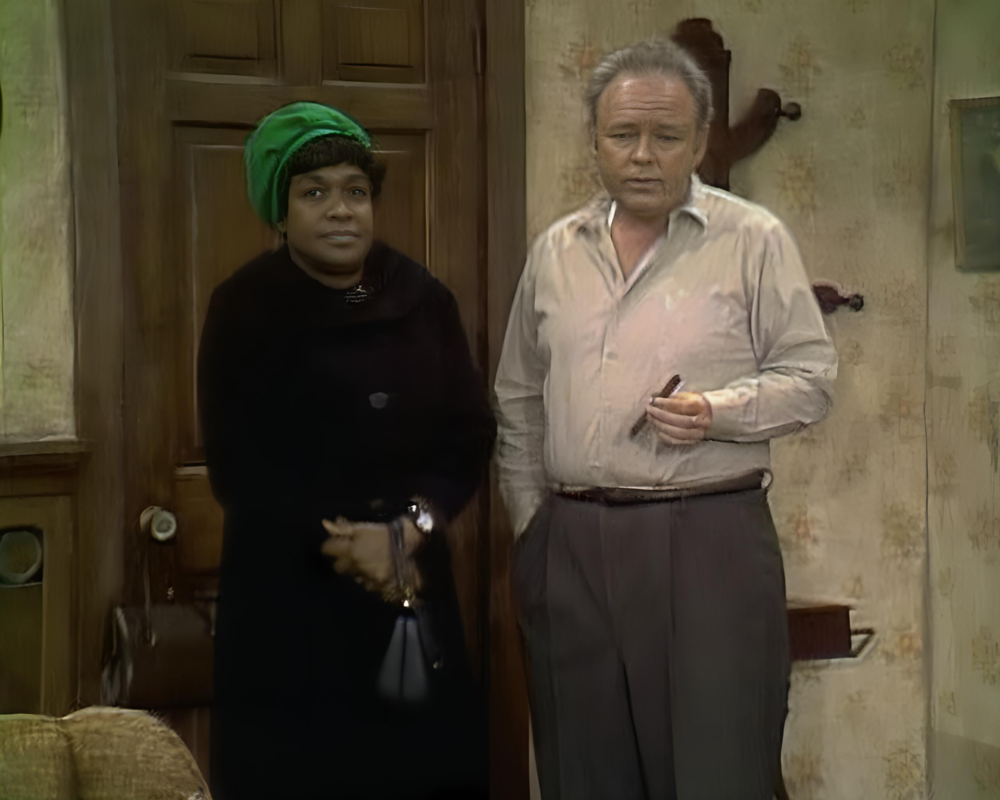
Opal Tometi, co-founder of the Black Lives Matter movement and a renowned human rights advocate, has offered her perspective on the enduring impact of the iconic television show “All in the Family.” As a show that brought racial and social issues to the forefront of American television, “All in the Family” has sparked both acclaim and controversy since its debut in the 1970s.
“All in the Family,” created by Norman Lear, features Archie Bunker, a character whose bigoted views are intended to be satirical and a critique of societal prejudices. While the show’s aim was to challenge and expose the absurdity of such views, Tometi raises important questions about the efficacy and potential pitfalls of using satire to address complex social issues like racism.
“Satire has a unique power to illuminate truths and provoke critical thought,” Tometi acknowledges. “However, it also requires a discerning audience to interpret the underlying messages correctly. In the case of ‘All in the Family,’ the humor sometimes walked a fine line, and not all viewers might have grasped the intended critique.”
Tometi expresses concern that some viewers may have identified with Archie Bunker’s prejudiced views rather than recognizing them as the target of satire. “While Archie was meant to be a caricature of ignorance and bigotry, his character could inadvertently validate those very attitudes among viewers who shared his prejudices,” she explains. “This highlights a significant risk in using comedy to tackle serious issues—it can sometimes reinforce the very stereotypes it seeks to dismantle.”
Moreover, Tometi points out that the show’s focus on individual bigotry may have overshadowed the broader, systemic nature of racism. “By concentrating on the personal biases of a single character, ‘All in the Family’ might have inadvertently minimized the pervasive and institutionalized aspects of racism,” she notes. “This can lead audiences to underestimate the depth and scope of racial injustice, viewing it merely as a problem of individual attitudes rather than a structural issue.”
Tometi also discusses the importance of representation and whose stories are being told. “The show predominantly centered around Archie’s perspective, which often marginalized the experiences and voices of people of color,” she argues. “This lack of diverse representation can limit the audience’s understanding of the true impact of racism on different communities.”
As a social justice activist, Tometi emphasizes the crucial role of media in shaping public perceptions and narratives about race and inequality. “Media has the power to influence and educate, but it also has the responsibility to portray issues accurately and thoughtfully,” she asserts. “Creators must ensure that their work amplifies marginalized voices and presents a nuanced view of social justice issues.”
Reflecting on the legacy of “All in the Family,” Tometi acknowledges its groundbreaking role in bringing social issues into mainstream conversation. “The show was revolutionary for its time, opening up dialogues about topics that were often ignored by other media,” she concedes. “However, we must critically evaluate its impact to understand both its successes and its limitations.”
Tometi’s insights call for a more deliberate and informed approach to media production and consumption. She advocates for storytelling that not only entertains but also educates and empowers viewers to engage in meaningful social change. “We need media that challenges us to think deeply, that highlights systemic issues, and that inspires action towards justice and equality,” she says.
In her critique, Tometi encourages contemporary creators to learn from the past and strive for greater inclusivity and accuracy in their portrayals of social issues. “It’s not enough to simply address these issues; we must do so in a way that genuinely advances understanding and progress,” she emphasizes.
Opal Tometi’s perspective on “All in the Family” underscores the complexities of using satire as a tool for social commentary. Her analysis reminds us of the need for media that thoughtfully engages with and accurately represents the realities of racial and social justice issues, ensuring it contributes positively to the ongoing fight for equality.
